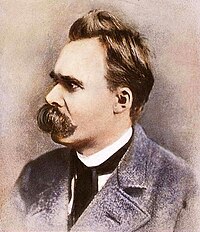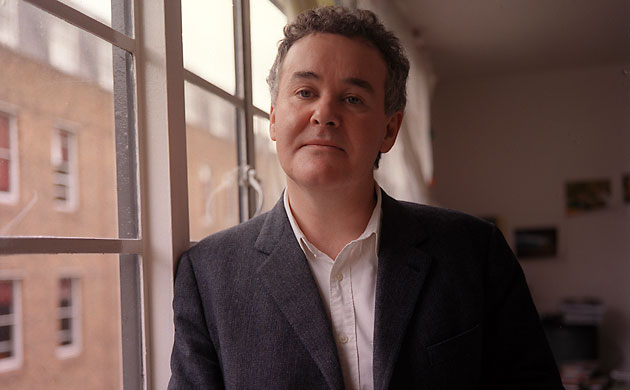
Existentialism is a term often applied to the work of many 19th and 20th century philosophers.
An exact definition: "A philosophy that emphasizes the uniqueness and isolation of the individual experience in a hostile or indifferent universe, regards human existence as unexplainable, and stresses freedom of choice and responsibility for the consequences of one's acts."
All of the philosophers had distinctive and individual views and theories, however, the view that was generally held was that the focus of philosophical thought should be to deal with the conditions of existence of the individual person and their emotions, actions, responsibilities, and thoughts
This is not to say that all of the philosophers theories were similar mind you, and thus we must examine the key factors of an existentionalist :
- They are obsessed with how to live one's life and believe that philosophical and psychological inquiry can help.
they believe there are certain questions that everyone must deal with (if they are to take human life seriously), and that these are special -- existential -- questions. Questions such as death, the meaning of human existence, the place of God in human existence, the meaning of value, interpersonal relationship, the place of self-reflective conscious knowledge of one's self in existing.
-Note that the existentialists on this characterization don't pay much attention to "social" questions such as the politics of life and what "social" responsibility the society or state has. They focus almost exclusively on the individual.
-By and large Existentialists believe that life is very difficult and that it doesn't have an "objective" or universally known value, but that the individual must create value by affiriming it and living it, not by talking about it.
-Existential choices and values are primarily demonstrated in ACTIONS not in words.
- Given that one is focusing on individual existence and the "existential" struggles (that is, in making decisions that are meaningful in everyday life), they often find that literary characterizations rather than more abstract philosophical thinking, are the best ways to elucidate existential struggles.
-They tend to take freedom of the will, the human power to do or not do, as absolutely obvious. Now and again there are arguments for free will in Existentialist literature, but even in these arguments, one gets the distinct sense that the arguments are not for themselves, but for "outsiders." Inside the movement, free will is axiomatic, it is intuitively obvious, it is the backdrop of all else that goes on.
-There are certainly exceptions to each of these things, but this is sort of a placing of the existentialist-like positions.
Albert Camus's "The Stranger" is a novel that i read and here is a short summary on the novel itself and its relevance to existentialism :
The novel begins with Meursault recalling his mothers death. Mamandies dies prior to the opening, yet, Meursault cannot remember exactly when, why, or any information of related significance. He thinks of his mother in a distant emotional state and continues about with his daily life, as if nothing has changed since her death.
Meursault visits the home, in which he placedMaman prior to he death (an inexact time ago), speaks with the caretaker about life, his mother, and smokes a cigarette. At the funeral, he looks around at the beautiful sunny day and wishes he were at home in bed in Algiers. He also observes the feeble old man, Monsieur Perez, who loved Maman, struggle to help carry her coffin to its burial plot.
After the funeral, Meursault takes a bus to the public beach, where he meets up with Marie Cardona, a beautiful young secretary from his company. They had flirted in the past, and without much delay, jump into bed together. After spending the day splashing around in the ocean and going to a movie (a comedy), Marie returns to Meursault's apartment where they make love. As they soon begin to spend much time together, Marie asks Meursault if he loves her. Meursault likes her, but sees nothing special about her or any woman in general. He will marry her if she wants, but according to him, nothing matters that much.
Meursault returns to work and his mundane life. He is reprimanded by his boss for having little drive and motivation, and passes some time with co-worker and friend, Emmanuel. He speaks with his downstairs neighbor, Salamano, who lives alone with his beloved spaniel dog. The dog suffers from a rare skin disease that covers his and his master's skin in scabs. Salamano eventually loses his dog, leaving him lonely and broken-hearted. Another neighbor, with whom Meursault become friends is Raymond Sintes. A short, stalky man, he condones violent outbursts towards women and openly beats his ex-girlfriend who is an Arab and who he believes to have cheated on him. Raymond and Meursault discuss their lack of emotions and past relationships, understanding the apathetic, cold, and indifferent personalities that they share.
One day, Raymond brings Meursault and Marie to the beach to visit his friend, Masson. They see a group of Arabs following them (including the brother of Raymond's ex-girlfriend). Near a stream at the edge of the beach, the Arabs fight the three men, and run off. After the three men return to Masson's cottage and their respective female companions, Meursault returns to the beach with Raymond's gun. He comes across the same Arab as before, and before much provocation shoots him once. After he falls, Meursault shoots him three more times.
Meursault is arrested and put in jail to await trial. He speaks with a magistrate, several policemen, and his defense attorney. While in trial, he gets to know his surroundings and is forced to contemplate his life, his worth, and his actions. He changes little and still cannot believe that he is on trial for murder. Marie visits him in prison, still hoping to marry him when he is released.
When the case begins months later, it is a media circus. Meursault observes his surroundings and sees every person he knows in court. The prosecuting and defense attorneys call them to testify on his character. Although all express their friendship and connection with Meursault fairly and in a positive light, it is Marie's testimony that ultimately destroys' Meursault's credibility. The prosecuting attorney persistently describes Meursault's indifference towards his mother's death as monstrous and apathetic. So, when Marie explains that they began their relationship immediately after the funeral proceedings, the judges and jury and audience members are convinced that Meursault is truly the unfeeling monster that the prosecutor makes him out to be.
Meursault is convicted of premeditated murder and sentenced to public execution by guillotine. While Meursault awaits his doom, he returns to prison and is forced to pass the time and think, again, ofhis life and actions. He is not changed. The prison chaplain enters to speak with him, to urge him to find God and salvation. Meursault still does not believe in God and finds the man frustrating and annoying. He grabs hold of him and begins to yell until the prison guards restrain him.
When the day of his execution arrives, Meursault understandsMaman's actions and feelings prior to her death. He thinks that maybe he could live another life. Regardless, he is excited about the day. He walks out to the guillotine hoping that everyone cheers loudly for his death.
Albert Camus characterises his justification of the absurd through the experiences of a protagonist, in this case Meursault, who simply doesn't conform with society and the system, and thus disturbs the status quo.
A modern day example of Existentialism could be in the very popular film, starring Brad Pitt, called "Fight Club" where the principles of freedom, choices, responsibilites, relationships are all covered in an extremely intelligent and imaginative way.
So there you have it, my best attempt at explaining Existentialism, comparing the old to the new and trying to summarise it as best as i could!
Enjoy!


